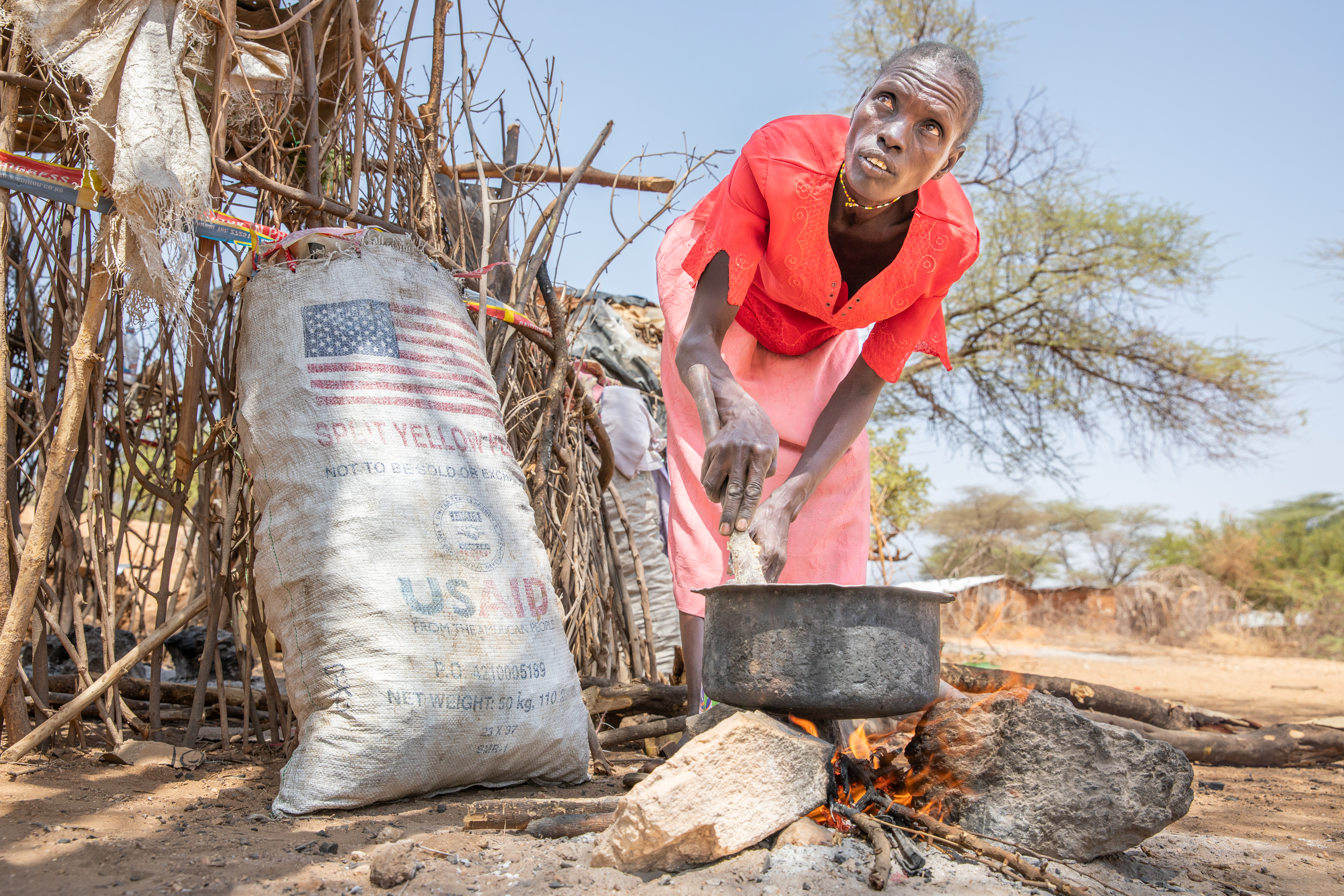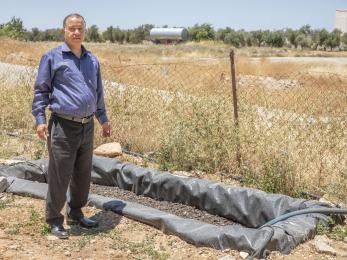Breaking the cycle of trauma for the next generation of refugee youth
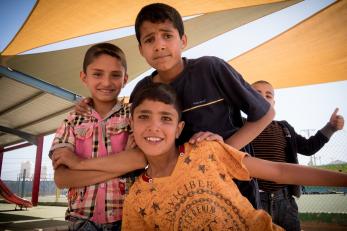
World Refugee Day is June 20 — a day to pause and think of the more than 70 million displaced people in the world. When I think of refugees, I can picture a real place, like Zaatari camp near the Syrian border in Jordan. I worked there managing Mercy Corps’ adolescent girl’s centre and child protection programmes. It is a place that offers safety and dignity in the midst of big challenges.
When I think of refugees, I also picture the faces of individual people who have taught me about resilience. I think of Um Ali, a mother who treated me as her son simply because I look like him. (He was killed in Syria.) She committed herself to working with Mercy Corps, to raise awareness among her peer parents about child protection and parenting. I think she was treating every child as her child. I think of young people like Shahed. Before escaping Syria, when she was 8 years old, a bullet nearly struck her brother and sister while they were playing. After becoming involved in Mercy Corps’ youth programme inside Zaatari, she transformed into a star student.
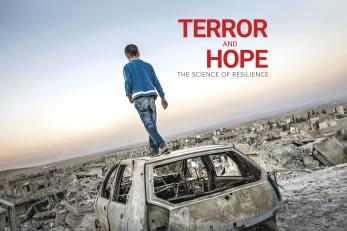
Escaping war, witnessing or experiencing violence, losing home and family—this kind of trauma can cause what is called “toxic stress”—and research has shown that its impact can actually be passed from one generation to the next.
I was recently included in a documentary called Terror and Hope: The Science of Resilience. The film explores some of the individual and multi-generational impacts of war, trauma and displacement on Syrian refugee children, through research led by Yale University scientists, working with Mercy Corps in Jordan.
From June 14 to June 20, you can watch Terror and Hope for free online. Learn more ▸
In the film, scientists look at how toxic stress from prolonged trauma can actually affect a child’s physiology — evidence can even be detected in the DNA. Together with scientists, specialists and educators, we look at what we can do to mitigate and heal from this kind of stress. We are not only working to help the individual, but also the family and the community in a holistic way.
Since 2010, Mercy Corps has worked with 3.5 million young people across 33 countries that are facing or recovering from natural disasters, economic crises and violent conflict. Mercy Corps’ youth programming focuses on people aged 10- to 24-years-old, with a special emphasis on adolescents and girls. Education, psychosocial support (mental health) and physical health — these are just some of the skills and services we provide.
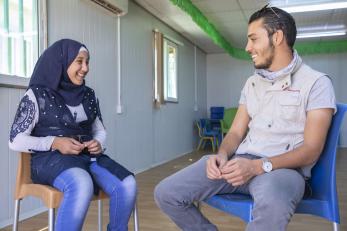
I truly believe in the potential for refugee youth to become leaders, no matter what they have been through. Gandhi, Nelson Mandela and Martin Luther King Jr. — all great leaders experienced hardship in their lives. Those hardships and experiences made them unique. Their struggles made their voices heard when they talked about peace, when they talked about justice. This is why when I work with refugee children and youth I see possibilities, because for them it's all about understanding their vulnerability, learning how to cope and building a huge passion for the future.
If the right interventions reach youth at the right time, something amazing can happen. It is possible to break the generational effects of trauma. I have hope that these years of conflict and disruption for refugee youth will forge a future generation that stands for peace.
As I say in Terror and Hope: at Mercy Corps, our work with youth (in Jordan and across the world) is not just about passing on information. It’s about giving children and youth practical tools to help them create a better future.

